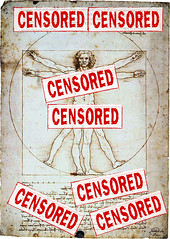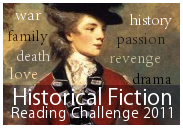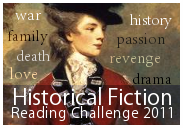 This week’s Booking Through Thursday question asks, “In contrast to last week’s question—What do you think of censoring books BECAUSE of their intended age? Say, books too ‘old’ for your kids to read?”
This week’s Booking Through Thursday question asks, “In contrast to last week’s question—What do you think of censoring books BECAUSE of their intended age? Say, books too ‘old’ for your kids to read?”
I am the parent of three children, aged 17, 10, and 8. I think some books are beyond their reading level. I can’t think of anything I would tell my 17-year-old daughter she couldn’t read. She has a good head on her shoulders. She is smart enough to know that book characters don’t necessarily make good choices. I imagine she has been exposed to just about whatever she might read in other media, such as online images and video, movies, TV, and the like. Plus, she’s just a bit younger than 18, after which point I don’t know how to tell her what to read when she is a legal adult, responsible for her actions. On the other hand, there are some things I wouldn’t let my 10-year-old read if she wanted to—mostly adult books with themes and content that I would rather she not see until she’s older. I try not to shield her too much from reality, but she is also a child, and I want her to stay a child for little longer. My son is the one I have to watch. He can find and read just about anything he wants, so I do try to make sure it’s appropriate for his age, although if I am honest, I think he has seen things (particularly videos online) that are not appropriate for age (not talking about pornography—just cartoon violence like on South Park). In terms of reading, it’s not about level, it’s more about content.
However, when the younger ones become teenagers, when they reach middle school, I hope they will turn to books to explore difficult subjects, such as abuse, racism, death, hunger, and the like. I think books are a good, safe way to live in someone else’s shoes. I would rather they read about rape or eating disorders from Laurie Halse Anderson than experience it themselves. I would rather them read about racism in [amazon_link id=”B003VYBQPK” target=”_blank” ]Huckleberry Finn[/amazon_link] or [amazon_link id=”0061743526″ target=”_blank” ]To Kill a Mockingbird[/amazon_link] than perpetrate stereotypes or hatred themselves.













